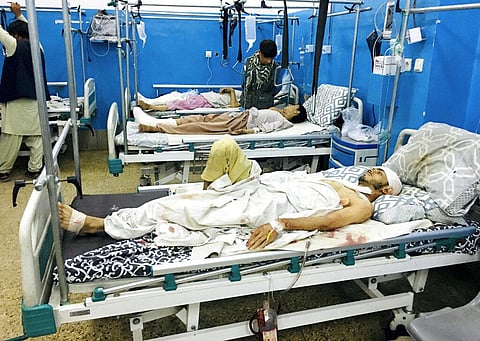

NEW DELHI: As two explosions rocked Kabul on Thursday leading to multiple casualties, India said its stand on the heightened security threat to the country due to an unstable Afghanistan has been vindicated. However, experts feel there is no immediate threat to the country.
“What is happening in Afghanistan is not an unexpected, strange or dramatic turn of events. It was coming and stakeholders knew it. The security establishment has got enough time to prepare to meet new challenges that may emerge and must have prepared accordingly. We must trust our security establishment,” said Ajit Singh of the Institute of Conflict Management.
Singh said the changed situation in Afghanistan, in all likelihood, may not pose an imminent threat to India. “Having said that, we must increase our vigil and ensure that we are not caught off guard as there have been instances where we were made to pay for complacency on the ground,” he added.
Russia-based American analyst Andrew Korybko said the ISIS-K claiming responsibility of the Kabul attack is alarming. “Indian officials must ensure that any potential ISIS-K cells in the country are identified and preemptively thwarted since the group lays claim to its territory as part of its envisioned caliphate,” he said and added that ISIS-K is more of a threat to Pakistan than India.
Responsibility of the twin explosions in Kabul was claimed by ISIS-K, an organisation which is believed to have many members from Pakistan. “The bigger picture is that this terror group is a threat to the entire region and even the whole world, considering that it targeted members of the withdrawing Western coalition. The ideal scenario would be that the four directly threatened countries — Afghanistan, India, Pakistan, and the US — devise some sort of mechanism for intelligence sharing that could be also be open to others,” Korybko added.
Senior fellow at Delhi Policy Group, Sanjay Pulipaka felt the blasts prove the security situation in Afghanistan is precarious. “It has been reported that ISIS-K took credit for this. It is possible there will be a new narrative. It will be argued that since the ISIS-K has made its presence felt, it is essential to support the Taliban/Pakistan to combat ISIS. Such a narrative will enable the Taliban to be portrayed as a partner in the fight against global terrorism. Sadly, this narrative will take attention away from the Taliban’s conduct and Pakistan’s support to terrorism in the sub-continent,” he said.